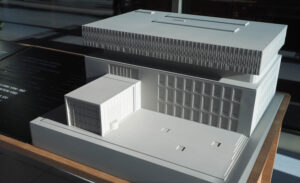I spent years doing lengthy competitor practice sessions, spending hours at high exertion levels with merely a few sips of water the entire time. I didn’t think much of it at the time, and my performance seemed to be unaffected. Only recently have I learned just how destructive this can be to the human body. Science tells us that hydration is a key part of athletic performance.
What really made me think about this was a recent meeting with Dr. James McKinney at the University of BC Sports Cardiology department. You see, as a high-level athlete who pushes himself pretty hard in cycling, dance, and in the gym, I was finding myself not only running out of steam after lengthy 2-4 hour athletic sessions, but being completely drained of energy. He asked about my hydration habits and it became clear that I wasn’t hydrating nearly enough for my level of activity.
Aside from daily intake of liquids needed to support normal everyday activity, it has been estimated that athletes lose between 300 and 2,400 milliliters (1.5 to 10 cups) of fluids (depending on intensity level) during every hour of physical exertion. This is mainly in the form of sweat, but also includes fluids lost through breathing. Every pound of weight lost during a training session is equivalent to 20 cups of liquid.
Kelly Anne Erdman, M.S., R.D., and 1992 Canadian Cycling Olympian (now a nutritionist in Calgary), recommends that athletes consume 10-15 milliliters of fluid for every kilo of bodyweight for every hour of activity. As well, she says it’s important to listen to your body for signs of dehydration that will limit your performance.
Water is the ideal beverage for short training sessions, or even during competitions or dance performances where your exertion takes place only for minutes at a time. When it comes to long training sessions lasting 90 minutes or more, it’s not enough to drink plain water. One of the most important aspects of liquid intake is replacing sodium lost through sweat. Salt contains sodium, so people often mistake sodium for salt, but they are not the same thing. There is no sodium in plain water, but you can use energy drinks formulated especially for athletes to replace sodium and electrolytes lost through training. Plain water will actually reduce your body’s drive to drink more beverages which are vital to your workout! Beverages like Gatorade contain sodium and minerals like potassium to replace electrolytes.
Sodium helps draw water across the lining of your intestines and into your blood stream, providing essential hydration as you exert yourself in sports activities. If your blood sodium levels are low, your fluid absorption rates will decrease, prolonging the effects of dehydration and making it harder for your body to rehydrate. In other words, even if you drink plenty of water, plain water will not replace your sodium levels and you’ll find it harder to stay hydrated. Athlete blood tests are used in some sports to determine sodium levels before, during and after intense exercise.
Different athletes have different rates of sweat loss. Some sweat a great deal during a practice, while others don’t. More importantly, different people have different levels of “saltiness” to their sweat, reflecting sodium loss. The more you sweat, and especially if your perspiration is salty, the more important it is to replace your sodium levels during and after a practice session. Because it’s impractical for endurance athletes (for example, a marathon runner or cyclist pushing their body for hours at a time) to drink enough fluids to replace energy lost in lengthy workouts, they will often ingest salty foods before a race, or take sodium tablets, to supplement the sodium loss that will take place during the event. They will also make sure they take in salty foods at the end of the race to further replace sodium lost.
Ballroom dancers usually don’t need to worry about sodium loss too much, but in long training environments or competition situations where you need to perform multiple rounds over several hours, you definitely need to consider your sodium levels. I now make sure to include electrolytes in my hydration choices for long sessions.
What happens to the body during physical exertion?
According to Zach Bush, MD, a physician who specializes in internal medicine, endocrinology and hospice care, water is a cleaning agent for our bodies. He explains that it is needed by every cell in your body to function properly, and is vital in helping our bodies work through the toxins we all breathe and eat every day.
A study published in the Journal of the American College of Nutrition revealed that a dehydration level of just 2 percent was enough to impair performance in tasks that required attention, psychomotor and immediate memory skills. Another study found that even mild dehydration was enough to cause mood disturbances.
Dehydration can also cause problems in the brain when electrolyte levels fall. Electrolytes help electrical signals pass between cells, so when these levels drop too low your cognitive functions suffer.
If you notice dark urine, it’s often a sign of dehydration. This is because the condition sends a signal to your hypothalamus, releasing a hormone called vasopressin. This results in the kidneys removing less water from the blood. Your kidneys effectively have to work extra hard.
Your body needs fluid to make blood, so when your fluid levels drop, so does the volume of blood in your body. This can lead to low blood pressure, which can cause you to faint.
As your blood gets thicker, your body increases your heart rate and respiratory rate to compensate, essentially putting the body into a stress state. This can lead to headaches, fatigue, eye strain and decreased sleep quality. Blood glucose can also spike.
As you can see, getting enough water, and replacing your electrolytes for long sessions of physical activity, is vital to high-level performance. Since my meeting with Dr. McKinney, I’ve been putting extra emphasis on proper hydration. Make sure you stay hydrated!
The post Drink Your Way to Performance Success appeared first on Delta.Dance.


